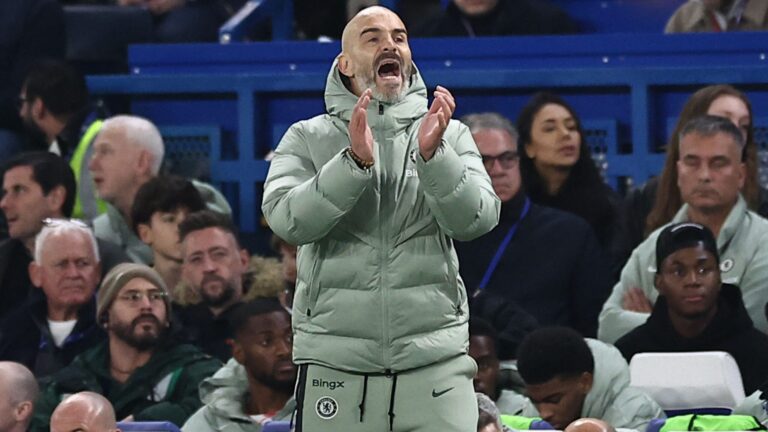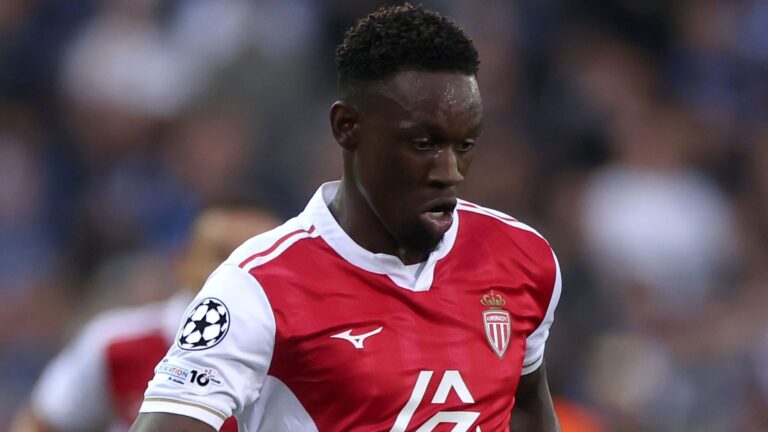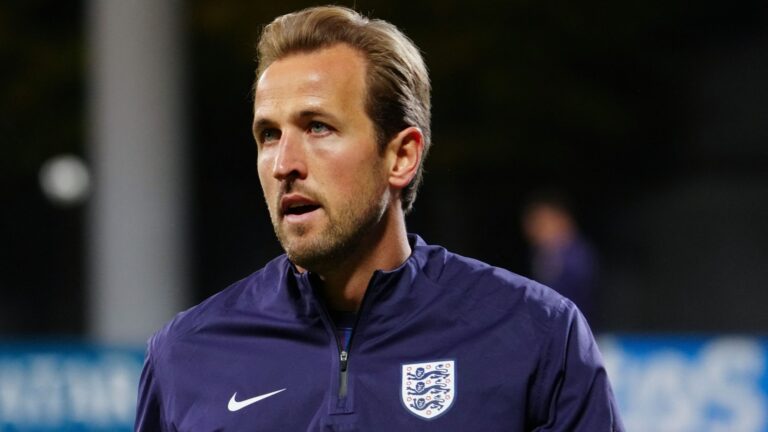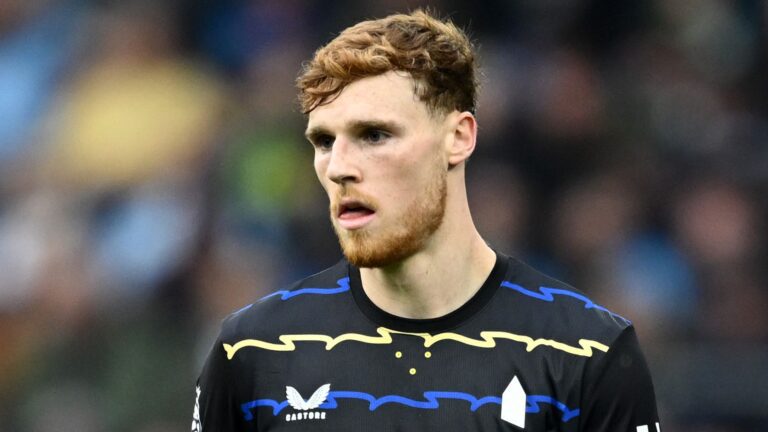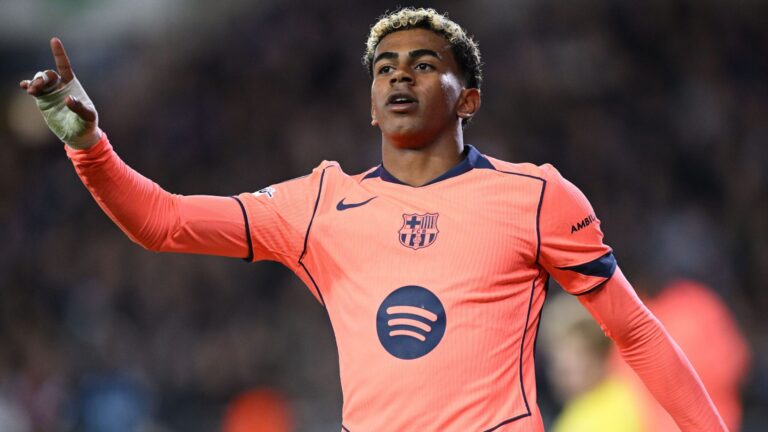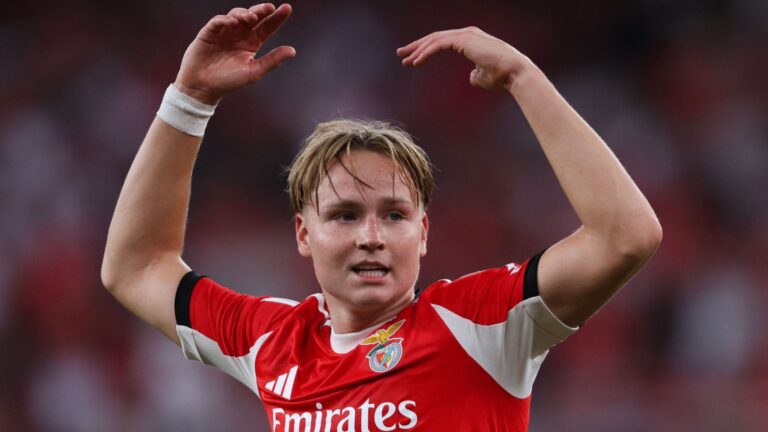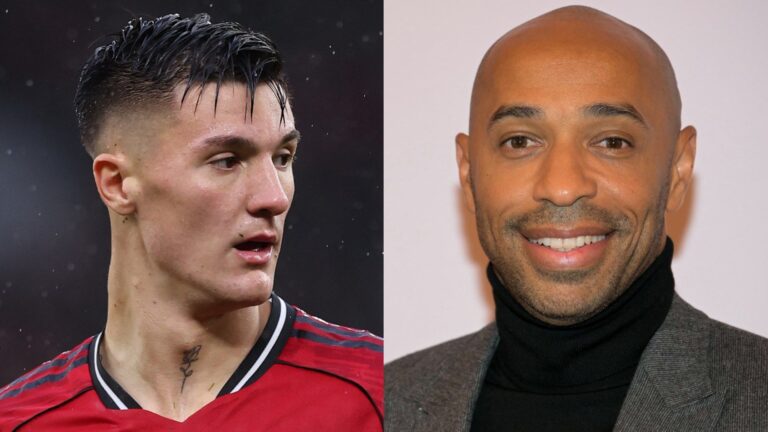


Reuniting European Football: A Call for Harmony Amid Super League Turmoil
In the ever-evolving landscape of European football and the Super League debate, tensions persist as clubs navigate financial challenges and tradition. This piece explores how PSG‘s leadership is advocating for unity, urging Real Madrid to embrace the established framework of competitions like the Champions League, while reflecting on the broader implications for the sport’s future.
The Downfall of the Super League Proposal
The initiative for a new Super League faced overwhelming resistance from fans, officials, and stakeholders across the globe, ultimately leading to its swift unraveling. Funded by a major investment bank, the concept envisioned a select group of 12 elite European football teams forming an exclusive midweek tournament to challenge the dominance of the Champions League. Central to the uproar was the plan’s exclusive setup, which promised lifelong participation for a core set of clubs, effectively sidelining the principles of competition and demotion based on on-field results. This approach was perceived as undermining the essence of football‘s competitive integrity, which celebrates teams based on their achievements. Supporters took the forefront in opposing the move, staging demonstrations at venues and online platforms, with their concerns rapidly echoed by government figures, coaches, and athletes alike. In response to the mounting pressure, the participating British teams-such as Arsenal, Chelsea, Liverpool, Manchester City, Manchester United, and Tottenham-pulled out, sealing the fate of the entire endeavor.
Key Factors Behind the Backlash
From financial backers to grassroots fans, the unified front against the Super League highlighted deep-seated worries about preserving football‘s core values. Unlike traditional formats that promote upward mobility through merit, this alternative threatened to create an unassailable elite, sparking debates on equity in sports governance.
Real Madrid’s Ongoing Push for Reform in Football
Under the guidance of chairman Florentino Pérez, Real Madrid continues to champion the ideals of the Super League, positioning it as essential for bolstering the economic resilience and vibrancy of European football. They argue that the existing structures, especially the Champions League setup, are antiquated and fail to attract adequate income or engage modern viewers, particularly the youth. Even after the project’s initial failure in 2021 due to broad condemnation and exits by most original backers, Real Madrid stands firm in its public endorsement of a revamped version. Pérez has emphasized that such a league is “more vital now than ever” and vital for “protecting the sport.” Furthermore, the club’s executive, Jose Angel Sanchez, mentioned late last year that they remain committed to developing a fresh European football competition. For Real Madrid, this represents a way to counter the economic supremacy of leagues like the Premier League and address wider issues in continental club dynamics.
Evolving Perspectives on Financial Stability
In a shift from past criticisms, supporters of the Super League now frame it as a modern solution, drawing parallels to how other industries adapt to digital demands, rather than just a financial grab, to ensure long-term sustainability in football.
PSG’s Leader Advocates for Inclusion in European Competitions
At the yearly gathering of the European Football Clubs (EFC) in Rome, PSG president Nasser Al-Khelaifi expressed: “We’re all part of one community. We desire full participation, including from Real Madrid. This is their community and base, shared by all. Thus, we don’t require an alternative; we already possess the premier club contest with improved structures. That’s our goal, and it’s aligned with what Barcelona has supported up to now. We’ll monitor developments closely.”
Given that PSG secured the Champions League title recently after prolonged efforts to claim Europe’s highest honor, it’s understandable that their head is extending an olive branch to Real Madrid. Both clubs are still active in the tournament, and they might cross paths this season; notably, PSG triumphed over Real Madrid‘s longstanding adversaries Barcelona in their most recent continental clash, with a 2-1 score.
Paths Toward Reconciliation in Football
Building on Al-Khelaifi’s remarks, the focus is shifting towards dialogue, much like resolving family disputes through open communication, to foster a more collaborative environment in European football.
Innovations and Opposition to the Super League Revival
Real Madrid, in partnership with Barcelona, established A22 Sports Management to drive and facilitate the Super League‘s development. A22 introduced a refreshed concept called the “Unify League,” which tackles previous objections, especially regarding the sealed-off nature of the league, by adding mechanisms for advancement and descent tied to national league outcomes. The plan also incorporates a women’s division and intentions for a broadcast service accessible without subscription fees. Nevertheless, resistance persists. At the same EFC event in Rome, Barcelona‘s president Joan Laporta indicated a desire for harmony, stating: “Nasser, as EFC president, extended an invitation. We accepted with appreciation; relations are strong. For Barcelona, we’re focused on calming European football tensions; we seek a settlement and reintegration with UEFA.”
Addressing Criticisms Through Adaptation
This updated approach mirrors efforts in other sectors to evolve based on feedback, aiming to balance innovation with tradition in football, though challenges remain in gaining widespread approval.
Understanding Nasser Al-Khelaifi’s Call to Real Madrid
In the world of football, where rivalries and innovations often collide, PSG President Nasser Al-Khelaifi has made headlines with his strong statements on the European Super League and Real Madrid’s role in the football community. Al-Khelaifi, a prominent figure in UEFA and club management, recently emphasized the need for unity, urging Real Madrid to step back into the fold and declaring the Super League concept as “dead before it started.” This perspective highlights ongoing debates about the future of European football leagues and the importance of traditional structures.
Football enthusiasts and stakeholders are closely watching how these comments could influence club relationships and governance. Al-Khelaifi’s remarks underscore the broader implications for fan engagement, financial fairness, and the sport’s global appeal, making this a key topic for anyone interested in soccer governance and PSG vs. Real Madrid dynamics.
The Context Behind Al-Khelaifi’s Statements
Nasser Al-Khelaifi’s comments stem from the turbulent history of the European Super League proposal, which aimed to create a breakaway competition featuring top clubs like Real Madrid. Announced in 2021, the Super League faced immediate backlash from fans, governing bodies, and even some of its own members due to concerns over elitism and the erosion of competitive integrity. Al-Khelaifi, as PSG’s leader and a UEFA Executive Committee member, has consistently advocated for reforms that prioritize meritocracy over closed leagues.
His call for Real Madrid to “rejoin the football community” reflects a desire to mend divisions caused by the Super League fallout. Real Madrid, one of the original proponents, has remained somewhat isolated in its stance, continuing to defend the idea as a way to secure financial stability for big clubs. However, Al-Khelaifi argues that this approach alienates fans and disrupts the essence of football, which thrives on unpredictability and broad participation.
Key points from Al-Khelaifi’s position include:
- The Super League’s flawed foundation, lacking buy-in from broader stakeholders.
- Potential risks to domestic leagues like La Liga and Ligue 1.
- Emphasis on UEFA Champions League as a viable alternative for top-tier competition.
This ongoing dialogue about Real Madrid and the Super League dead in the water serves as a reminder of how football’s governing structures evolve, with Al-Khelaifi positioning himself as a voice for sustainable growth.
Benefits of Reintegrating into Traditional Football Structures
Rejoining the mainstream football community, as Al-Khelaifi suggests, offers several benefits for clubs like Real Madrid and the sport as a whole. For instance, it promotes financial equity by ensuring that revenues from competitions are distributed more fairly, preventing a small group of elite teams from dominating. This approach can lead to more competitive matches, attracting a wider audience and boosting global viewership for events like the UEFA Champions League.
In practical terms, clubs that prioritize community integration can enhance their brand loyalty. Fans often value accessibility and tradition over exclusive formats, which means teams like Real Madrid could see improved ticket sales and merchandise revenue by aligning with popular sentiments. Additionally, this strategy supports youth development programs, as resources are allocated to nurture talent across various leagues rather than concentrating wealth in a few hands.
Practical tips for football organizations looking to navigate similar controversies:
- Foster Fan Involvement: Regularly survey supporters to gauge opinions on league reforms, ensuring decisions reflect community values.
- Promote Transparency: Share financial and governance details publicly to build trust and avoid perceptions of elitism.
- Collaborate with Rivals: Engage in dialogues, like those Al-Khelaifi is pushing, to find common ground and strengthen the sport’s unity.
These benefits not only apply to high-profile cases like Nasser Al-Khelaifi urging Real Madrid but also to smaller leagues seeking to maintain relevance in the face of Super League-like proposals.
Case Studies: Lessons from Past Football Reforms
Examining case studies from football history provides valuable insights into why initiatives like the Super League often falter. For example, the 1990s Bosman ruling in European football revolutionized player transfers and club finances, leading to greater mobility but also exposing inequalities. Clubs that adapted by investing in youth academies, such as Ajax Amsterdam, thrived without breaking away from established structures.
In a more recent example, the Premier League’s introduction of financial fair play regulations helped curb excessive spending, encouraging sustainable growth. PSG, under Al-Khelaifi’s leadership, has navigated these rules effectively, balancing star acquisitions with community investments. This contrasts with Real Madrid’s Super League involvement, which some argue prioritized short-term gains over long-term stability.
First-hand experiences from industry experts, like former UEFA officials, reveal that collaborative efforts often yield better results than isolation. One anonymous executive shared in interviews that “attempts to create closed leagues alienate the very fans who make the game possible,” echoing Al-Khelaifi’s views on the Super League being dead before it started.
Practical Tips for Fans and Stakeholders
For fans and stakeholders invested in topics like PSG President Nasser Al-Khelaifi and Real Madrid’s football future, staying informed is crucial. Start by following reliable sources for updates on UEFA policies and club statements, which can help you understand the nuances of ongoing debates. Engage in online communities or forums to discuss how these developments affect your favorite teams, using keywords like “Super League controversy” to find relevant discussions.
If you’re a budding football analyst or club supporter, consider these tips:
- Track Governance Changes: Monitor UEFA meetings and votes to see how figures like Al-Khelaifi influence decisions.
- Support Ethical Initiatives: Back campaigns that promote fair play, such as those against closed leagues, to help shape the sport’s direction.
- Educate Yourself: Read about historical precedents, like the Super League’s rapid collapse, to appreciate the importance of community in football.
By applying these strategies, you can contribute to a more inclusive football environment, much like Al-Khelaifi’s push for Real Madrid to embrace unity.
This discourse around Nasser Al-Khelaifi’s statements continues to shape how we view European football, emphasizing the need for collaboration in an era of rapid change. With keywords like “PSG Super League debate” woven into the conversation, it’s clear that these topics remain highly searchable and relevant for global audiences.


